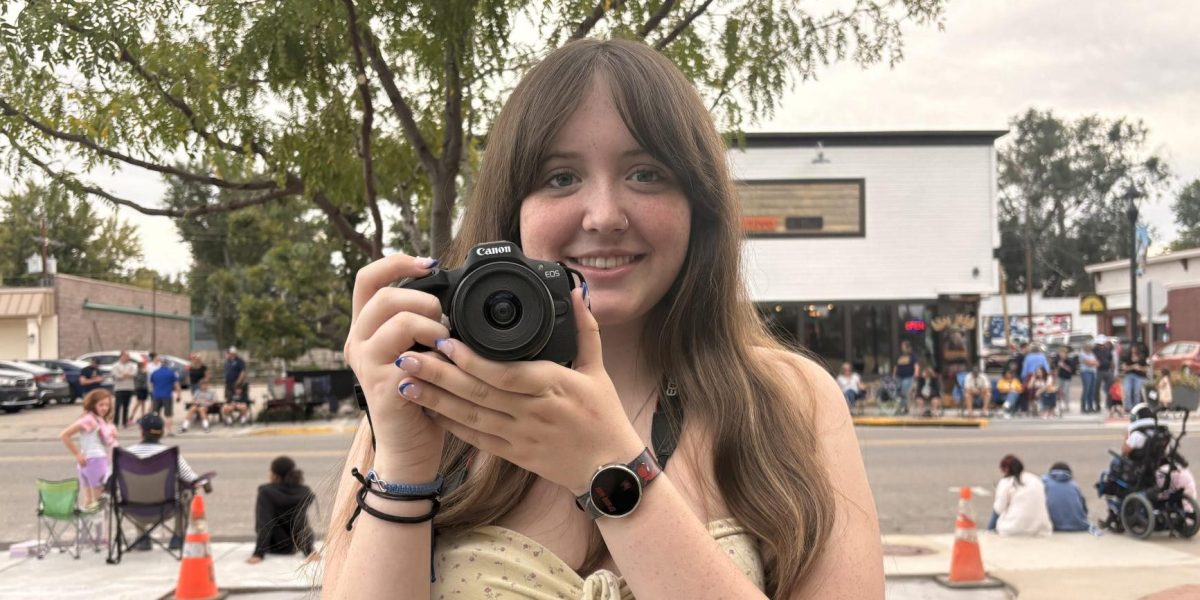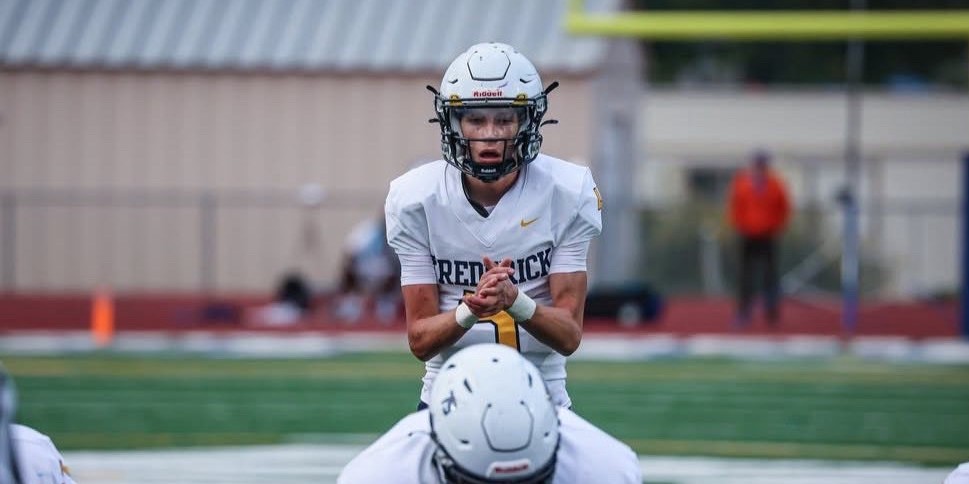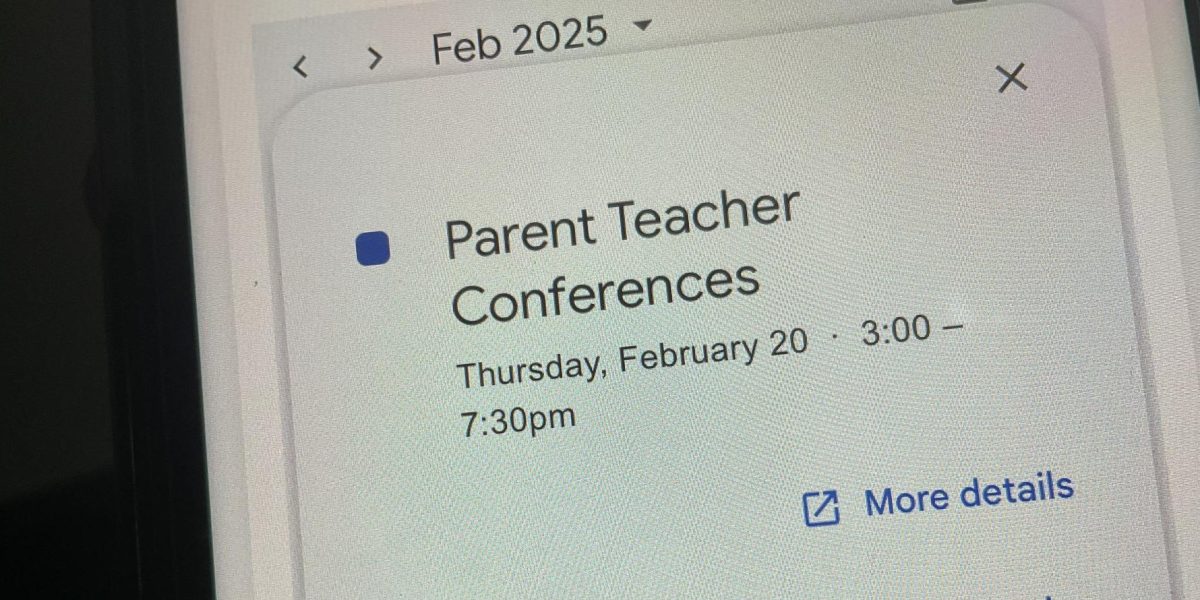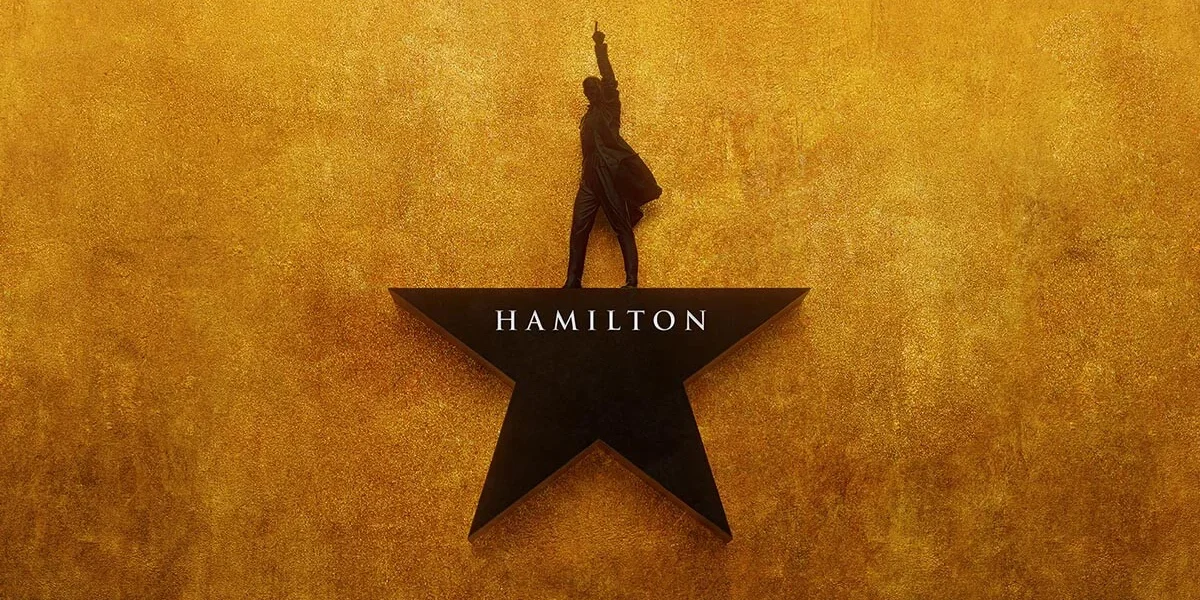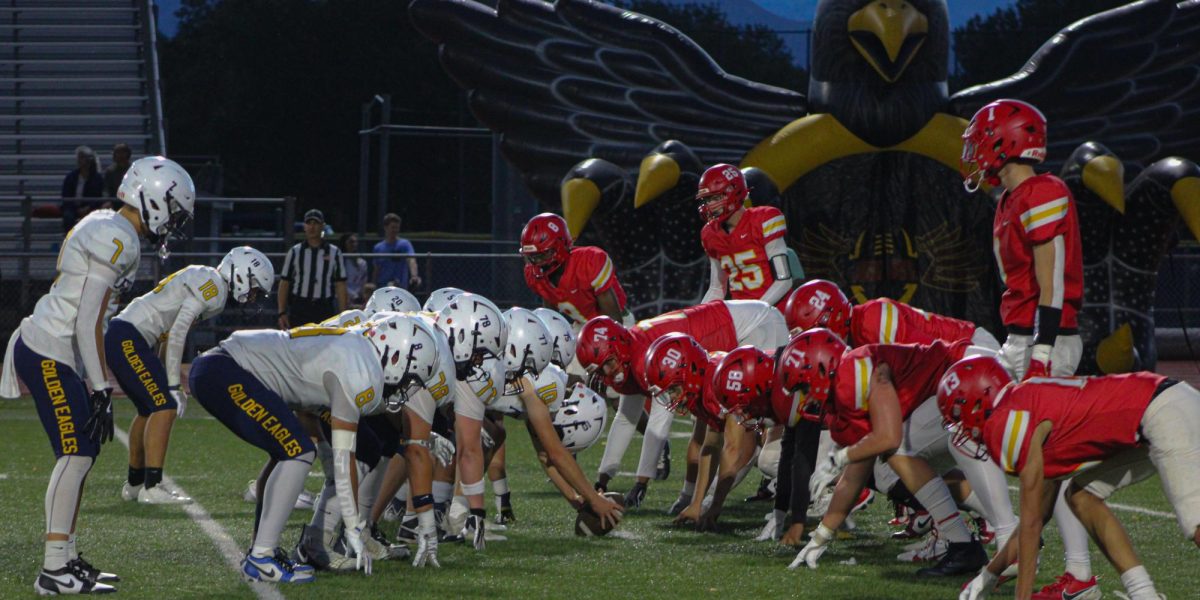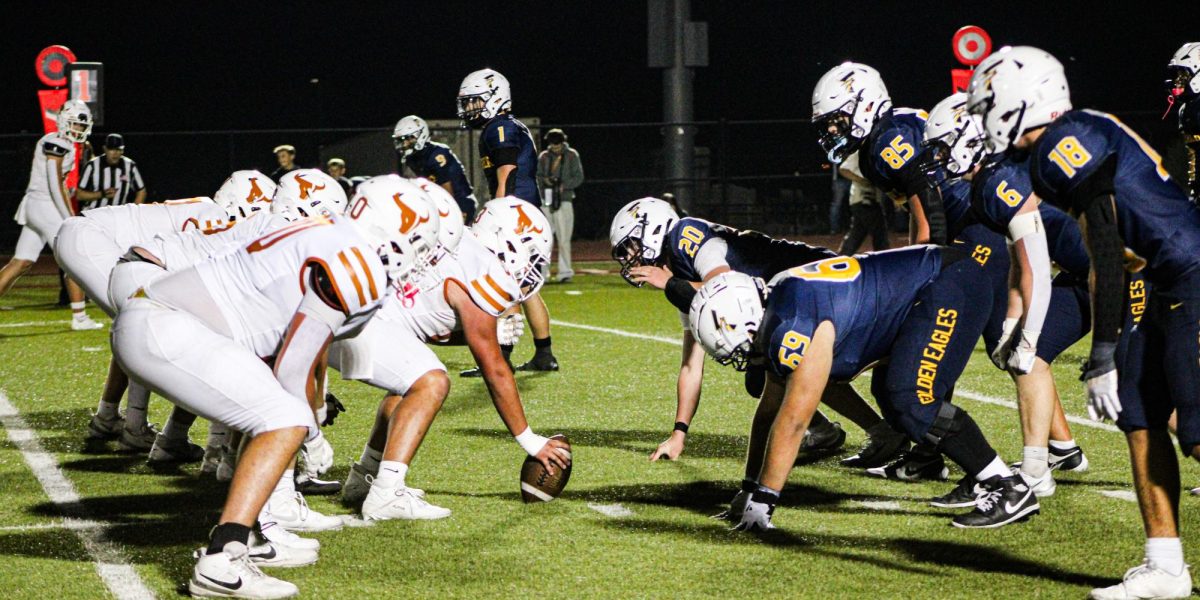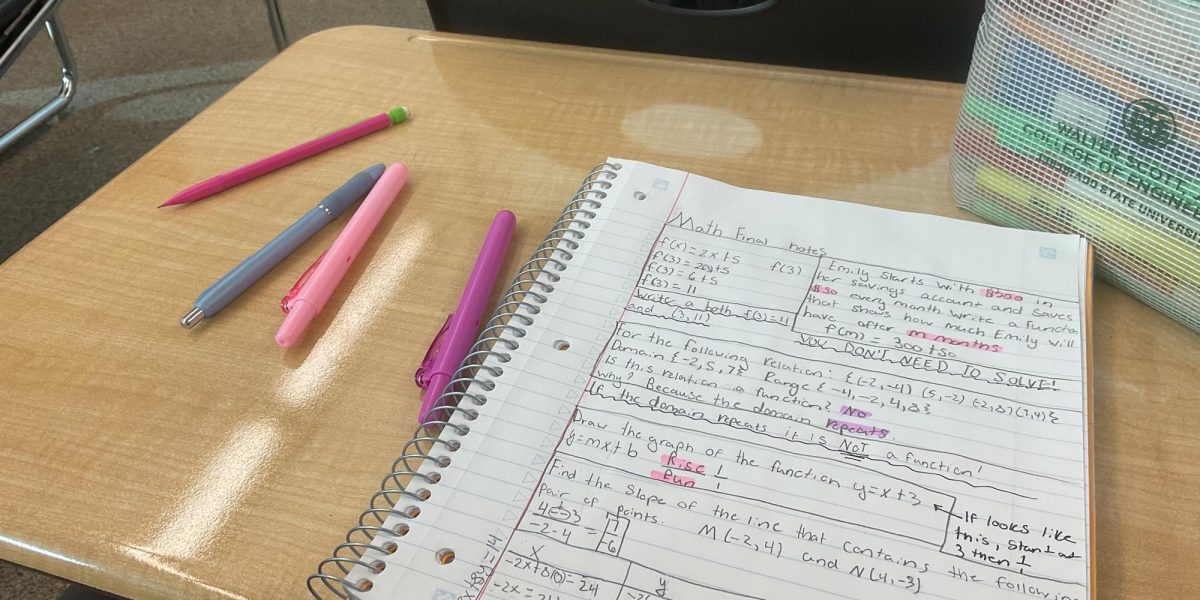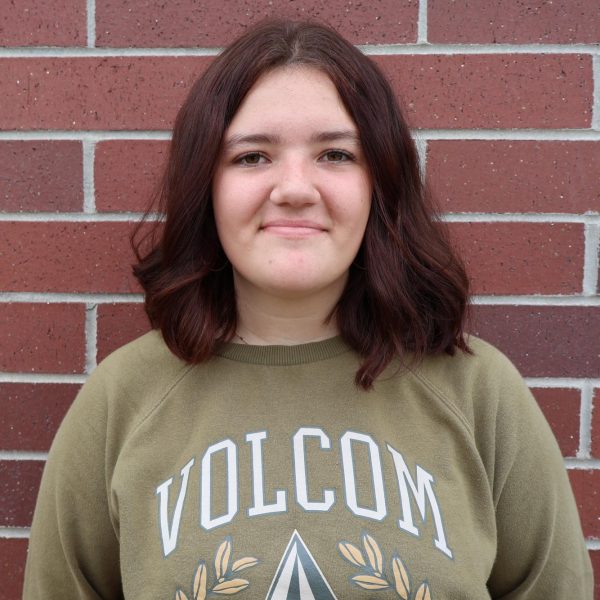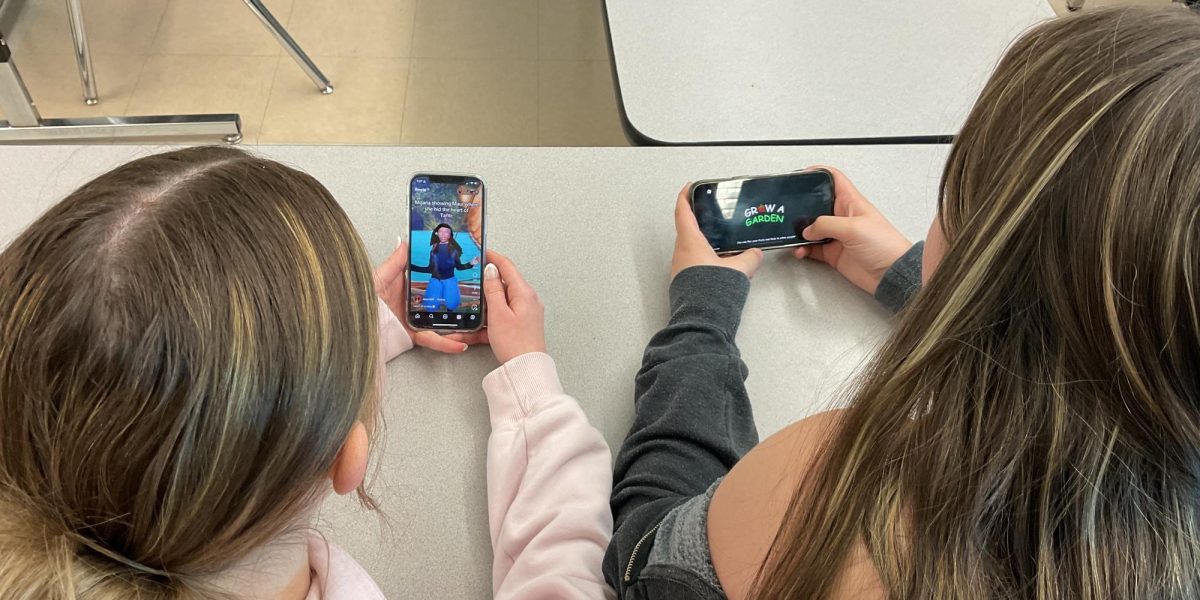Next week are finals! While there’s joy that the end of the semester is upon us (and a well-earned break), there’s a lot of student anxiety built up around the finals by freshmen who’ve never had them before, seniors who are hoping to graduate, and everyone else who just wants to get their credit and hit their GPA goals.
For the uninitiated, here’s how finals work: At Frederick High, the last three days of a semester follow a special finals schedule of 90-minute classes separated by 10-minute passing periods. This semester, finals follow this schedule:
Every class is required to have a final activity for students that is placed in the assessment category. A final cannot be more than 20% of a student’s total grade, so a student with at least an 80% B- going into their final cannot fail the class if they get a zero on the final. While some portion of the final must happen during the class final, final projects and essays can start weeks before the final day. Teacher then input final grades for the semester—final grades should be posted by 3:00 p.m. on Friday of Finals Week, and if they won’t be, your teacher should let you know.
Most students see finals as a make-or-break situation for their final grade, so below are five different aspects of finals and how to ace each one and make it through the week.
1. Excelling at Exams: Spoil, Study, Sleep
Most Frederick High classes use an exam as their final. While some PE and arts classes have performance exams, most exams are on paper or electronic via Schoology. When it comes to exams, you need a three-part strategy to succeed: spoil, study, and sleep.
When you hear that you are getting a final exam, ask your teacher as many questions as you can to spoil what is on the final so you know what to study and what not to waste time on. Teachers want you to do well (it’s literally their job), so while they often will not give you the answers ahead of time, they are willing to outline what content is on the test if you ask the right question. Here are some to ask:
- Is the final cumulative (over everything learned over the semester) or just on the last unit?
- What types of questions will be on the exam? Ask specifically about multiple choice, true/false, fill-in-the-blank, matching and diagram labeling, and short answer responses.
- Will content covered in the class lectures be on the exam? What about readings? Videos?
- Will you provide a study guide beforehand?
- Will we be able to use any resources (cheat card, equation sheet, internet, etc.) on the exam?
- What would you recommend as the best way to prepare for this exam?
Once you know what is on the exam, study. To study, you need to first gather your notes and organize your work because, in the words of Kids Health, “you can get to work faster without wasting time looking for stuff.” Next, review key points and major ideas on each note page—a great way to make sure you know the material is to summarize the notes. Ignore any new material.
Generate questions—specifically, the same kinds of questions that will be on the exam—and quiz yourself. Studies show that quizzing yourself in this way is the most effective way to study. You can use apps and websites like Quizlet, Anki, and Notion for creating sample questions, tracking how you do answering them.
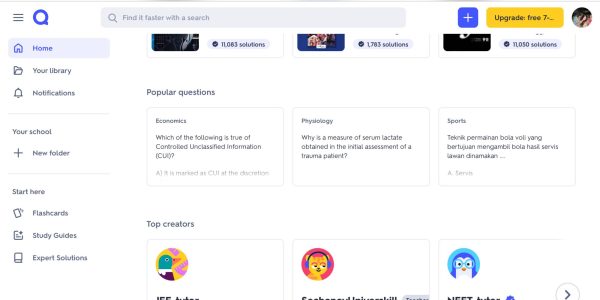
There are two ways you can study: alone or with a group. If studying solo, create a quiet, distraction-free place, whether that’s your room, another place in your house, the library, or outside. The keys to distraction-free work are to be out of reach of your phone and to not be doing anything else—another task like watching a movie, baking, or babysitting will pull your focus away. If you can’t work in silence, play calm instrumental music like lo-fi beats, as anything you can sing along to can distract you.
If you are trying to study for a large cumulative exam or if you have missed some days in class and are missing notes, form a study group with other people who have the same instructor for the same class. A study group can help fill in gaps in your subject knowledge, make studying more efficient because it breaks up the work, and keep you accountable to actually study. However, study groups can also have their issues: keep your group small (3-6 people) and don’t include anyone that will distract you, even if they are your best friend. You’ll have plenty of time to hang over break after you ace your classes.
When you study is as important as where and how you study. Science shows that studying for a short period of time (15 to 30 minutes) over multiple days is much more effective than longer cram sessions right before an exam. A great way to balance your studying is by using the Pomodoro Method:
- Study one subject (say, social studies) for 25 minutes
- Take a 5-minute break to get a snack, hit the restroom, or check your phone
- Study a different subject (like science) for 25 minutes
- Take another 5-minute break
- Study a third subject (like Spanish) for 25 minutes
- Take a third 5-minute break
- Study a fourth subject OR study the first subject again for 25 minutes
- Take a longer 20-minute break before doing anything else
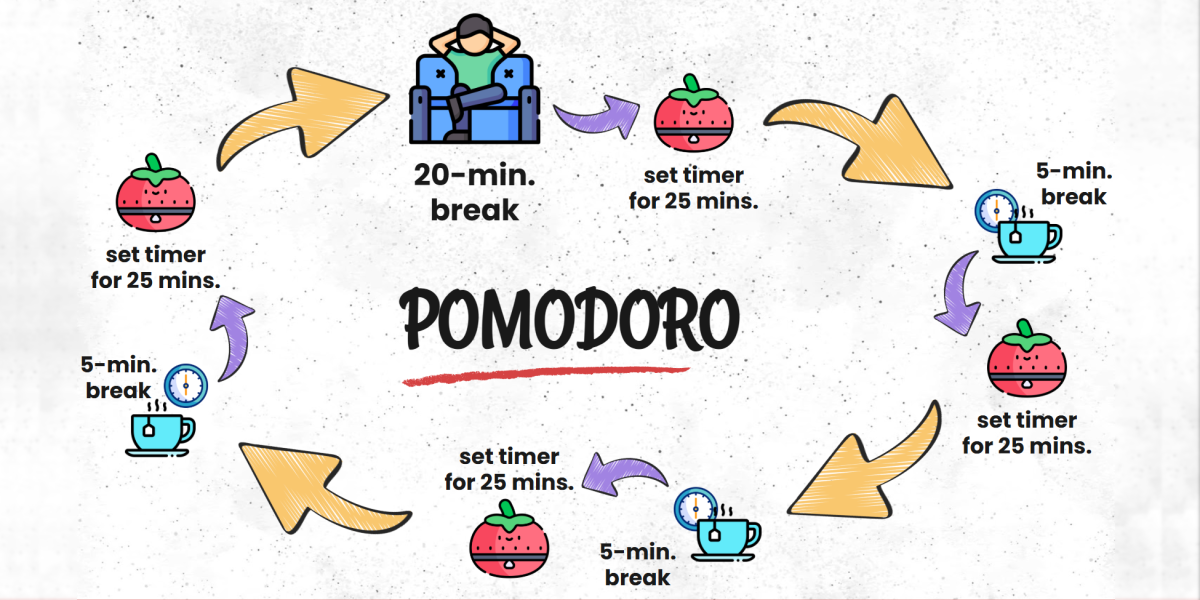
Lastly, get a good night’s sleep before your exam. Your brain doesn’t function as well when it’s tired, and most teenagers don’t get the recommended 8-10 hours of sleep they need each night normally. A full night’s sleep and breakfast will give your brain the energy it needs to tackle the tests. You can always stay up until 2 a.m. playing Fortnite during break.
2. Perfecting your Projects: Plan, Piece, Polish
Not every final is an exam, however. Teachers in the humanities, arts, and electives typically assign a final project instead of a final test. You will typically get this project days or weeks ahead of the final. The final class may not even be the due date: some teachers have the final submitted ahead of time and graded and use the finals period to share projects with others or reflect on the project learning.
Regardless of when the project is due, you need to plan backward, piece together, and polish every project.
All good projects start with a plan. According to Untapped Learning, “breaking down large tasks into smaller, more manageable pieces can make a huge difference, reducing stress and increasing productivity.” When you receive the project instructions, have a clear idea of what the final project should be. Ask your teacher for an example project or a rubric so you know exactly how the project will be evaluated. Then, start planning backward from the finished product to figure out all the steps you need to do to create the project:
- What small details do I need to polish for the project so it will be as close to perfect as I can get it?
- Before I polish, what pieces of the project do I have to assemble? These could be literal pieces of an art piece or diagram or pieces of information in the form of slides or poster sections.
- Before I assemble the pieces, how am I supposed to make each piece?
- Before I make each piece, what do I have to decide? All projects involve the element of choice, so figure out what you need to choose for yourself.
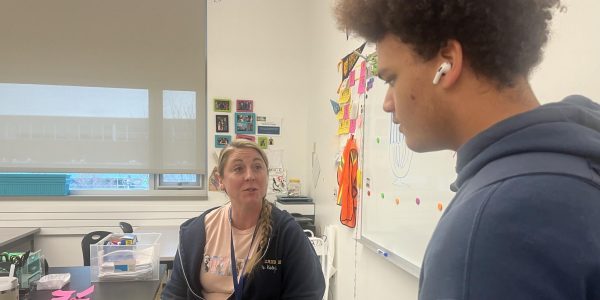
Once you make your plan, make your choices, and start building every separate piece of your project. Build the pieces one at a time so you don’t get distracted or confused. Once every piece is created, piece together the project. Whether literally assembling something or adding slides together, some things won’t fit exactly, so during this process, adjust each piece until everything fits together in a logical and consistent way.
Don’t forget to polish the finished project so it looks professional and at the quality of a school assessment. Slidedecks should be edited for grammar and spelling. Video and audio should have clean cuts and credits. Models should be labeled and can be moved without falling apart. Art pieces should be sealed so they don’t smudge if someone touches them. Edible projects should be plated and garnished. This is especially important if you will encounter another aspect of projects: presentation. Make sure you know the teacher’s expectations of how the project will be shared with others so you know how to prepare to impress.
Like studying, sometimes projects are done better in a group (or group work is required). The process of going about a project is the same, but everyone has a role to play. In a successful group project:
- everybody is part of the planning process and has some of their ideas incoporated into the plan–this way, everyone feels that their input matters, and they will be more likely to complete their part of the project
- one person is elected as the “leader” and everyone else has one piece of the project to create themselves; the leader’s job at this point is to check in on how everyone is progressing on their piece of the project
- everyone puts the pieces together, with each person adjusting their own piece if needed
- the leader polishes the work and turns it in or presents it
If someone in the group isn’t fully doing their part, the leader should know pretty quickly. No one person should do that person’s work for them; rather, the group needs to meet with the person and adjust their workload to something more reasonable for them to finish. If the person refuses to do anything, make the teacher aware.

3. Winning at Writing
Still other subjects, like English and many AP or college-credit courses, require a final piece of writing, typically an essay. Sometimes (especially in AP classes), the essay will be composed entirely during the final class. If so, treat this like an exam: over multiple days, practice writing similar essays within the 90 minutes of class time you will have. Typically, you want 20% of your time to be planning out what you want to say, 60% writing the essay, and 20% reading over and revising your work. Ask your instructor ahead of time how the essay will be scored and if they can provide some practice prompts for you.
More often, teachers treat final papers like projects: students are given instructions and a prompt one or two weeks ahead of the final. If this is the case, make sure you know the basic requirements:
- length (typically a word count)
- format (MLA or APA style? submit as a .doc or a .pdf?)
- if research is involved, number of sources required
- how the paper will be scored (rubric)
Before writing the paper, outline it. Occasionally, your final paper will be a narrative, and you’ll need to make sure you outline a conflict, point of no return, and climax. Usually, final papers are either expository essays (those that explain something with no bias) or argumentative essays (those that want to convince the audience that their opinion is right). For expository papers, start with an introduction, then discuss background/origin, then in-depth description of the topic, then an analysis of how others view the topic and its effects, and end with looking at potential future developments. For argumentative papers, introduce the opinion with a thesis, then define the situation, then support the opinion with data, then address and refute counterarguments, and finally conclude with a call to action for the audience.
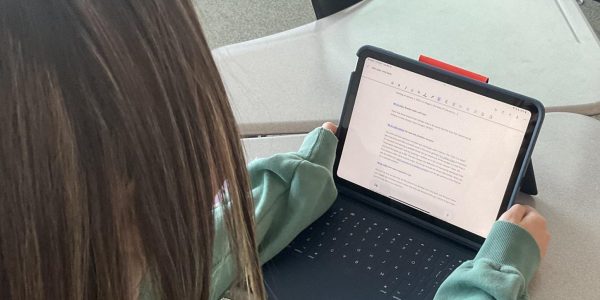
The best way to compose a paper is to write it as soon as possible and extend editing for as long as possible. Say you have seven days to write the essay:
- outline day 1
- write the whole draft day 2
- take day 3 off
- edit and revise day 4
- take day 5 off
- edit and revise day 5
- take day 6 off
- format and submit day 7
By taking entire days away from the paper, you allow yourself to forget what you’ve written and thus can edit and revise it with a more objective perspective.
4. Capturing Any Last Chances
Beyond the final itself, finals represent your last chance to get in some of your missing work before the semester ends. Lots of teachers have late-work deadlines, and are either super strict, or super lenient. Making sure you get all your late work in before the deadlines could bring your grade to the highest it can be before the final. (
5. Rest the Stress Away
Finals is a stressful time, so it’s important to take moments for self care to avoid getting overwhelmed or burned out. Practicing mindfulness techniques like deep breathing or meditation can reground you and help you focus more. There is very websites that could guide you through this like Head Space, Tara Brach, and Mindful. All of these websites provide guides, tips, and reasons why meditation is important. Maintaining a positive attitude and focus on progress over perfection can help you stay more calm during this stressful work period.
Make sure yoy get 8-10 hours of sleep every night, as sleep is what keeps your brain working. You might feel tempted to stay up late working on projects or craming for a test. Don’t do it! It will only make you more tired, more prone to mistakes, and more stressed out.
Finally, take the time to fuel your body. Drinking water regularly and having balanced meals is important because your mental sharpness depends on nutrients and hydration. In the words of the graduate program advisers at New York University, “there is no final exam on earth worth skipping a meal for. Make sure you are eating enough to stay full and energized throughout the day and feel your best.”
Good luck, and you’ve got this!!














